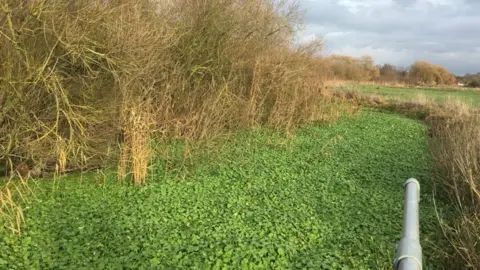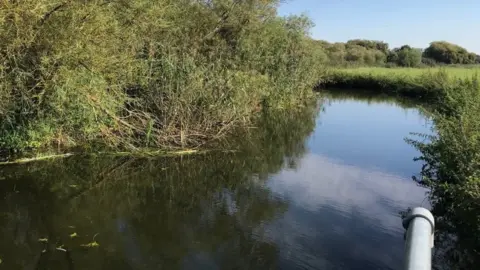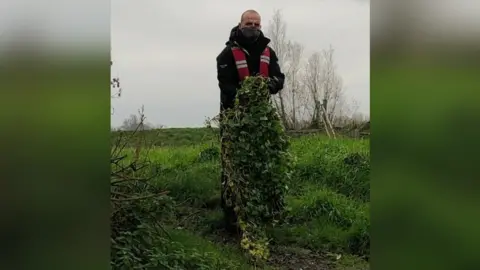River Great Ouse invasive pennywort cleared in five-year project
 Environment Agency
Environment AgencyAn invasive plant has been cleared from a 23-mile (37km) stretch of river in a five-year project.
Thick mats of the non-native pennywort were removed from the River Great Ouse between Bedford and Brampton in Cambridgeshire.
Pennywort can change oxygen levels in water, which threatens fish, and can also affect drainage systems and native plants, the Environment Agency said.
It was growing at a rate of 20cm (8ins) a day before the programme began.
The Environment Agency, Anglian Water and volunteer groups began the long task of removing it in 2017.
 Environment Agency
Environment Agency"Floating pennywort can have big impacts on wildlife and recreational users," Chris Gerrard, a biodiversity manager at Anglian Water, said.
"As part of our £800m environmental improvement programme to protect and enhance the region's environments, we have partnered with the Environment Agency and others to help keep the Ouse free of this problem plant and prevent it from reaching our reservoir at Grafham Water."
 Enviroment Agency
Enviroment AgencyAn Environment Agency spokesman said: "To remove the plant, various methods were used including de-bulking using weed boats, continuous handpicking, and revisiting the sites every two weeks to check it had not grown back.
"These methods then had to be repeated over several years."
The agency's James Brokenshire-Dyke, added: "By removing the pennywort along this section of the river, we become one step closer to completely eradicating it.
"We have now moved on to the next part of the project which sees us continuing this work from Brampton to Earith."
Floating pennywort was brought into the UK in the aquatic nursery trade in the 1990s.
It was banned from sale and made illegal to plant in 2014.

Find BBC News: East of England on Facebook, Instagram and Twitter. If you have a story suggestion email [email protected]
